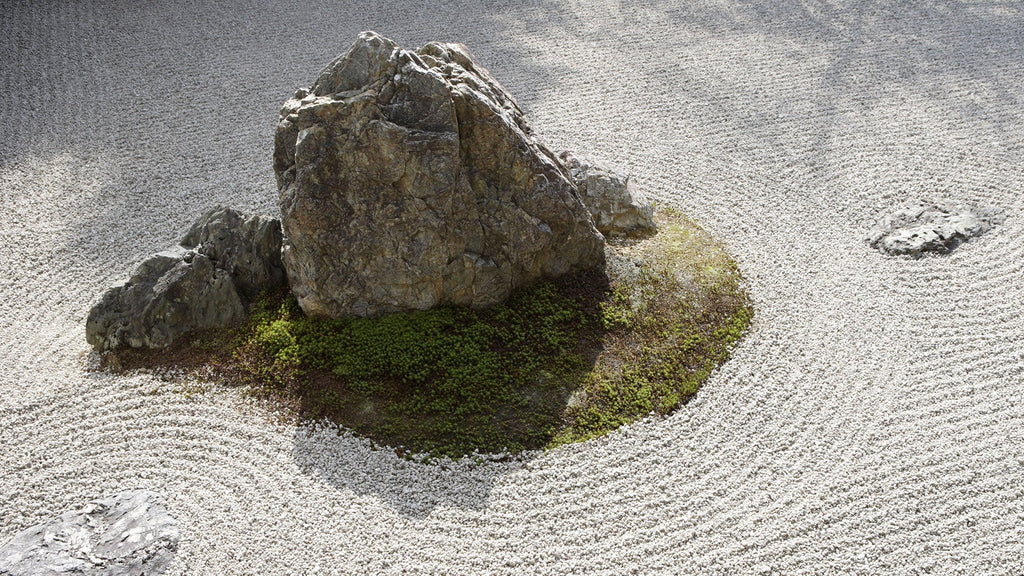Unlock the profound wisdom of the samurai, exploring how Zen Buddhism and Bushido, the warrior's code, forged unparalleled inner strength and discipline. Discover timeless principles to empower your modern life.
1. Introduction to the Samurai's Way
The allure of the samurai, with their legendary swords, unwavering discipline, and profound philosophy, continues to captivate imaginations worldwide. More than just skilled warriors, the samurai were the embodiment of a unique cultural and ethical system that profoundly shaped Japanese history. This article delves into the core tenets that defined these formidable figures: the disciplined path of Zen Buddhism and the ethical framework of Bushido. Understanding their intertwined influence offers not just historical insight, but also timeless wisdom for cultivating inner strength and navigating modern challenges.
1.1 Who Were the Samurai
The samurai, literally meaning "those who serve," were the military nobility and officer caste of medieval and early modern Japan. Emerging as provincial warriors in the 10th century, they rose to prominence during the Kamakura period (1185-1333) and held significant power for nearly seven centuries, until the Meiji Restoration in 1868. They were not merely soldiers; they were a distinct social class, possessing privileges, land, and a unique code of conduct.
Their primary role was to serve their feudal lords, known as daimyo, and the ruling shogunate, maintaining order and defending territories. Beyond their martial prowess, samurai were expected to be cultivated individuals, often engaging in poetry, calligraphy, the tea ceremony, and Zen meditation. This blend of martial skill and cultural refinement was a hallmark of their identity.
| Defining Characteristic | Description |
|---|---|
| Elite Warriors | Highly trained in various martial arts, including swordsmanship (kenjutsu), archery (kyudo), and horsemanship. |
| Military Nobility | A distinct social class with significant political and economic influence, holding land and administrative roles. |
| Feudal Loyalty | Bound by a strict code of allegiance to their lord, often to the point of sacrificing their own lives. |
| Cultural Patrons | Actively participated in and promoted arts, literature, and spiritual practices like Zen Buddhism. |
| Adherents of Bushido | Lived by an unwritten code emphasizing honor, courage, rectitude, benevolence, respect, honesty, and loyalty. |
1.2 The Historical Context of Feudal Japan
The samurai's emergence and evolution are inextricably linked to the turbulent history of feudal Japan. This era, characterized by a decentralized political structure and frequent warfare, provided the perfect crucible for the warrior class to flourish. From the establishment of the first shogunate to the long period of peace under the Tokugawa, the samurai were at the heart of the nation's development.
Following the decline of imperial power, the rise of powerful regional clans led to a demand for professional warriors. The Kamakura Shogunate, established in 1185 by Minamoto no Yoritomo, marked the beginning of true warrior rule, shifting political authority from the emperor and court nobles to the military elite. This set the precedent for centuries of samurai dominance.
The subsequent Muromachi (Ashikaga) period saw continued internal strife but also a flourishing of arts and culture, heavily influenced by Zen Buddhism, which the samurai readily adopted. The most intense period of conflict was the Sengoku ("Warring States") period (1467-1603), where powerful daimyo constantly vied for control, leading to an unparalleled era of martial innovation and strategic brilliance among samurai commanders.
Finally, the Edo period (1603-1868), under the Tokugawa Shogunate, ushered in a long era of peace and stability. During this time, the samurai transitioned from active warriors to administrators, bureaucrats, and cultural guardians. While their martial skills were less frequently tested in battle, their philosophical and ethical code, Bushido, became even more formalized and emphasized as a way of life.
| Historical Period | Key Characteristics | Significance for Samurai |
|---|---|---|
| Kamakura Period (1185-1333) | Establishment of the first military government (Shogunate); rise of warrior class power. | Samurai became the de facto rulers of Japan, laying the foundation for their social and political dominance. |
| Muromachi Period (1336-1573) | Ashikaga Shogunate; internal conflicts and cultural flourishing, including Zen influence. | Further integration of Zen Buddhism into samurai culture and the development of distinct warrior aesthetics. |
| Sengoku Period (1467-1603) | "Warring States" era; intense civil wars among powerful daimyo. | Peak of samurai martial prowess and strategic warfare; defined many legendary warrior figures. |
| Edo Period (1603-1868) | Tokugawa Shogunate; long period of peace and stability; strict social hierarchy. | Samurai transitioned from active warriors to administrators and scholars, refining Bushido as a moral and ethical code. |
This rich historical tapestry provides the essential backdrop for understanding how the samurai cultivated their distinctive way of life, intertwining martial discipline with profound spiritual and ethical principles.
2. Understanding Bushido The Warrior's Code
Bushido, literally "the way of the warrior," is more than just a code of conduct; it is a philosophy that guided the lives of Japan's samurai for centuries. This unwritten moral compass emphasized discipline, ethical behavior, and a profound sense of honor, shaping not only their combat prowess but also their daily existence. While its formal codification largely emerged during the peaceful Edo period (1603-1868), its roots trace back to the earliest samurai traditions, blending indigenous Japanese spiritual beliefs with elements of Confucianism and Buddhism.
2.1 The Seven Virtues of Bushido
At the core of Bushido lie seven principal virtues, often referred to as the "Seven Virtues of Bushido." These tenets provided a framework for righteous living, demanding adherence to high moral standards even in the face of death. They were not merely ideals but practical guidelines for decision-making, self-control, and interaction with others.
| Virtue (Japanese) | English Translation | Core Principle |
|---|---|---|
| 義 (Gi) | Rectitude / Justice | Doing what is right, even when difficult. |
| 勇 (Yu) | Courage / Heroism | Facing fear with bravery and wisdom. |
| 仁 (Jin) | Benevolence / Compassion | Showing kindness and empathy to all. |
| 礼 (Rei) | Respect / Politeness | Treating others with courtesy and deference. |
| 誠 (Makoto) | Honesty / Sincerity | Speaking the truth and being genuine. |
| 名誉 (Meiyo) | Honor / Glory | Maintaining one's dignity and reputation. |
| 忠義 (Chūgi) | Loyalty / Duty | Faithfulness to one's lord, family, and principles. |
2.1.1 Rectitude and Justice
Gi (義) represents the unwavering commitment to doing what is morally right, without hesitation or compromise. For the samurai, this meant making decisions based on truth and justice, regardless of personal gain or popular opinion. It was about discerning right from wrong and acting accordingly, even if it led to unpopular or dangerous outcomes. This virtue underpinned all others, as true courage or loyalty could only exist if founded on a righteous path.
2.1.2 Courage and Heroism
Yu (勇) is not merely the absence of fear, but the ability to face it with wisdom and resolve. A samurai was expected to demonstrate bravery not only on the battlefield but also in daily life, standing up for what is right and confronting challenges head-on. This courage was tempered by prudence, meaning that reckless behavior was not glorified; rather, calculated and purposeful action was valued. It encompassed both physical prowess and moral fortitude.
2.1.3 Benevolence and Compassion
Jin (仁) embodies the spirit of compassion, kindness, and generosity. Despite their warrior status, samurai were expected to show empathy and care for others, especially those weaker than themselves. This virtue encouraged them to use their strength to protect and serve, rather than to oppress. It was a recognition that true power lay not just in the ability to fight, but in the capacity to foster harmony and well-being within society.
2.1.4 Respect and Politeness
Rei (礼) emphasizes the importance of respect and politeness in all interactions. This went beyond mere etiquette; it was an outward manifestation of an inner respect for others and for oneself. Samurai were taught to be courteous even to their enemies, to maintain composure, and to observe proper decorum in every situation. This virtue helped maintain social order and reflected a deep understanding of human dignity.
2.1.5 Honesty and Sincerity
Makoto (誠) signifies absolute honesty and sincerity in word and deed. A samurai's word was his bond, and deception was considered an ultimate disgrace. This virtue demanded integrity, ensuring that one's actions aligned with one's stated intentions. To speak without sincerity or to act with duplicity was to undermine one's honor and credibility, a fate often considered worse than death.
2.1.6 Honor and Glory
Meiyo (名誉) is perhaps the most iconic virtue associated with the samurai. It represents the profound importance of one's reputation, dignity, and self-worth. For a samurai, honor was paramount; it dictated every aspect of their life, from their conduct in battle to their personal relationships. Losing one's honor, through cowardice or betrayal, was a fate to be avoided at all costs, sometimes even leading to the ritual suicide of seppuku as a means to restore it.
2.1.7 Loyalty and Duty
Chūgi (忠義) is the unwavering faithfulness and devotion to one's lord, family, and principles. This virtue was central to the feudal system, where a samurai's loyalty to their daimyo (feudal lord) was absolute. It extended to fulfilling one's duties diligently and prioritizing the collective good over individual desires. This deep sense of obligation formed the backbone of the samurai's social and military structure.
2.2 The Origins and Evolution of Bushido
The concept of Bushido did not emerge overnight as a single, codified document. Instead, it evolved organically over centuries, drawing from various philosophical and religious traditions. Its earliest roots can be traced to the martial traditions of the Heian period (794-1185), where warrior families began to establish codes of conduct focused on bravery and skill in combat. However, the true shaping of Bushido began to crystallize during the Kamakura period (1185-1333), with the rise of the shogunate and the establishment of a warrior government. During this time, Zen Buddhism started to gain significant influence, providing a spiritual framework for discipline, focus, and an acceptance of death.
During the Sengoku period (Warring States period, 1467-1615), Bushido's emphasis shifted slightly towards practical battlefield ethics and unwavering loyalty in a time of constant conflict. However, it was in the long period of peace during the Edo period (1603-1868) that Bushido underwent its most significant intellectual development and formalization. With less need for constant warfare, samurai became administrators, scholars, and moral exemplars. Intellectuals and philosophers began to write extensively on the warrior's code, drawing heavily from Confucian ethics (emphasizing loyalty, filial piety, and benevolence) and Zen Buddhist principles (stressing self-discipline, mindfulness, and indifference to death).
Key texts like the Hagakure by Yamamoto Tsunetomo, compiled in the early 18th century, and works by Confucian scholars like Yamaga Sokō, helped to articulate and popularize Bushido's ideals. These writings provided a philosophical backbone, transforming the practical warrior's code into a comprehensive ethical system that guided every aspect of a samurai's life. While some historians debate the extent to which these ideals were universally practiced, Bushido undeniably became the aspirational moral framework for the samurai class, influencing Japanese culture and national identity long after the samurai era concluded.
3. Zen Buddhism: Its Influence on the Samurai
While Bushido provided the ethical framework and practical guidelines for the samurai, it was Zen Buddhism that offered the profound philosophical and psychological bedrock, shaping their inner world and approach to life and death. Introduced to Japan in the 12th and 13th centuries, Zen resonated deeply with the warrior class due to its emphasis on direct experience, discipline, and the pursuit of enlightenment through self-effort, rather than reliance on scriptures or rituals.
3.1 The Principles of Zen Philosophy
Zen, a school of Mahayana Buddhism, teaches that enlightenment (satori) can be achieved in this life through meditation and a profound understanding of one's true nature. Its core principles provided the samurai with a potent spiritual toolkit:
- Satori (Enlightenment): This is not an intellectual understanding but a sudden, direct realization of ultimate truth, transcending dualities like life and death, self and other. For the samurai, this meant an ability to face mortality without fear, seeing death as a natural, inevitable part of existence rather than an ultimate end.
- Zazen (Seated Meditation): The primary practice of Zen, zazen involves sitting in a specific posture, focusing on breath, and observing thoughts without attachment. It is a rigorous training of the mind, aimed at cultivating profound concentration and stillness.
- Koans: These are paradoxical riddles or stories, such as "What is the sound of one hand clapping?" used by Zen masters to challenge a student's logical mind and force a breakthrough into intuitive understanding, paving the way for satori. They helped samurai break free from conventional thought patterns.
- Mu (Emptiness/No-thingness): Zen teaches that all phenomena are impermanent and lack inherent, fixed self-existence. This concept, often misunderstood, fosters a sense of non-attachment to outcomes, possessions, or even life itself. For a warrior, understanding Mu allowed for detachment from fear of loss, including the loss of one's own life.
- Non-Attachment: Central to Zen, this principle involves letting go of desires, fears, and ego. By not clinging to life, the samurai could fight with total abandon and focus, unburdened by self-preservation instincts.
- Direct Experience and Intuition: Zen emphasizes personal experience and intuitive insight over dogma or intellectual analysis. This resonated with the samurai's need for decisive action and immediate understanding in fluid combat situations.
3.2 Zen Meditation and Mindfulness for Warriors
The practical application of Zen principles, particularly meditation and mindfulness, was transformative for the samurai. These practices were not merely spiritual exercises but crucial components of their martial training and psychological conditioning.
Zazen Practice and its Benefits:
Zazen, or seated meditation, was more than just a path to spiritual awakening; it was a powerful tool for developing mental fortitude. By regularly engaging in zazen, samurai cultivated:
- Unwavering Focus: The ability to concentrate intensely, blocking out distractions and maintaining clarity even in the most chaotic environments.
- Emotional Regulation: Learning to observe thoughts and emotions without being overwhelmed by them, leading to a calm and composed demeanor under pressure.
- Enhanced Decision-Making: A clear, uncluttered mind could assess situations rapidly and make swift, effective decisions in battle.
- Reduced Fear: By confronting and observing their inner anxieties during meditation, samurai developed a profound ability to face fear and even death with equanimity.
Mindfulness in Action – The State of "Mushin":
Perhaps the most significant contribution of Zen to the samurai's martial prowess was the concept of "Mushin" (無心), or "no-mind." This is a state where the mind is free from thoughts, emotions, and preconceived notions, allowing for spontaneous, intuitive action. In combat, Mushin meant:
- Instinctive Reaction: The warrior could respond to an opponent's moves without conscious thought or hesitation, acting purely on instinct and training.
- Fluidity and Adaptability: Without the burden of overthinking, the samurai's movements became fluid and adaptable to changing circumstances.
- Total Presence: Being fully present in the moment, aware of everything yet attached to nothing, was crucial for survival and victory.
Zen's influence extended beyond formal meditation into various martial and artistic practices, transforming them into forms of meditative training. The path to mastery in arts like Kendo (swordsmanship), Kyudo (archery), and even the Chanoyu (tea ceremony) mirrored the Zen path to enlightenment, emphasizing mindfulness, precision, and the unity of mind and body.
3.3 How Zen Shaped Samurai Discipline and Focus
Zen Buddhism provided the samurai with an unparalleled framework for cultivating extreme discipline and unwavering focus, essential qualities for a warrior class.
| Zen Principle | Impact on Samurai Discipline & Focus |
|---|---|
| Acceptance of Impermanence (Mu) | Helped samurai face death without fear or hesitation, allowing them to fight with complete dedication and focus on the present moment of combat, rather than worrying about the outcome. |
| Zazen & Mindfulness | Cultivated intense mental clarity, emotional control, and the ability to maintain concentration amidst chaos. This translated directly into superior battlefield awareness and strategic thinking. |
| Non-Attachment & Ego Dissolution | Freed warriors from the burden of personal desires, pride, or fear of failure. This fostered a selfless dedication to duty and the ability to act decisively without internal conflict, embodying the state of Mushin. |
| Emphasis on Direct Experience | Encouraged reliance on intuition and immediate perception rather than intellectualizing, leading to spontaneous and effective action in combat. This minimized hesitation, a fatal flaw for a warrior. |
| Austerity and Simplicity | Zen's aesthetic of simplicity (Wabi-sabi) promoted a spartan lifestyle, free from material distractions. This allowed samurai to devote themselves entirely to their training and duties, fostering an environment of rigorous self-discipline. |
Zen did not just offer a spiritual path; it provided the samurai with a practical philosophy for living and dying with purpose. It instilled a deep sense of inner calm, resilience, and an unwavering resolve that was indispensable for navigating the harsh realities of feudal Japan. The disciplined mind, honed by Zen, became as potent a weapon as the katana itself, enabling the samurai to embody the ideals of Bushido with profound inner strength.
4. The Intertwined Paths: Samurai, Zen, and Bushido
The samurai’s journey was not merely one of martial prowess but a profound quest for inner harmony and strength, meticulously woven from the threads of Zen Buddhism and the ethical tapestry of Bushido. These two seemingly disparate philosophies converged to forge an individual capable of both fierce combat and profound introspection, creating a unique warrior-philosopher.
4.1 Cultivating Inner Strength Through Zen and Bushido
The true power of the samurai lay in the synergistic relationship between Zen and Bushido. Bushido provided the moral compass and the actionable virtues—the “what to do”—while Zen offered the mental discipline and philosophical grounding—the “how to be”. Together, they cultivated an unshakeable inner strength that transcended mere physical ability.
Zen Buddhism, with its emphasis on meditation (zazen), mindfulness, and the pursuit of enlightenment through direct experience, taught the samurai to achieve a state of “mushin” (no-mind). In this state, thoughts, fears, and ego dissolve, allowing for intuitive, unhesitating action. This mental clarity was invaluable in battle, enabling warriors to react instantly and effectively without the paralysis of doubt or fear. The Zen concept of impermanence (mujo) also played a crucial role, helping samurai to accept the transient nature of life and death, thereby diminishing their fear of dying and allowing them to face any challenge with courage.
Bushido, on the other hand, instilled a rigorous code of conduct centered on virtues like courage, loyalty, honor, and rectitude. It demanded unwavering commitment to duty and a readiness to sacrifice oneself for one's lord or principles. When infused with Zen, Bushido’s virtues gained deeper meaning. Courage became not just a display of bravery, but an action performed with a clear, unburdened mind. Loyalty was upheld with a selfless, present-moment focus. The discipline required to master martial arts and adhere to Bushido's strictures was profoundly enhanced by Zen's emphasis on sustained concentration and self-control.
The combination fostered self-mastery in its purest form: control over one's emotions, thoughts, and actions, even in the face of extreme adversity. It allowed the samurai to live with dignity, fight with purpose, and face death with serenity, embodying a holistic approach to life and warfare.
4.2 Famous Samurai Who Embodied These Ideals
Numerous samurai figures throughout history exemplify the profound integration of Zen and Bushido. Their lives and philosophies continue to inspire, demonstrating the practical application of these intertwined paths.
4.2.1 Miyamoto Musashi
Perhaps the most legendary swordsman in Japanese history, Miyamoto Musashi (c. 1584–1645) is a prime example of a samurai who lived by both the sword and a deep philosophical understanding influenced by Zen. His unparalleled skill in duels, often against multiple opponents, was not merely a result of physical prowess but a testament to his mental discipline and strategic insight.
Musashi's seminal work, “Go Rin No Sho” (The Book of Five Rings), is not just a manual on swordsmanship but a treatise on strategy, philosophy, and self-mastery. It reflects a profound understanding of Zen principles such as direct experience, observation, and detachment. He advocated for the “Way of Emptiness”, which aligns closely with Zen's concept of mushin, allowing one to perceive things as they are without preconceived notions or emotional interference. His pursuit of mastery was a solitary, disciplined path, culminating in his later years spent in hermitage, meditating and refining his philosophy, further underscoring the Zen influence on his inner life.
| Aspect of Musashi's Life | Zen Influence | Bushido Embodiment |
|---|---|---|
| Swordsmanship & Combat | Intuitive action, "no-mind" (mushin), direct perception of opponent. | Unwavering courage, decisive action, pursuit of ultimate mastery, honor in victory. |
| Philosophy (Go Rin No Sho) | Emphasis on direct experience, detachment, observation, the "Way of Emptiness." | Strategic thinking, discipline, self-reliance, the pursuit of martial perfection. |
| Personal Life & Discipline | Solitude, meditation, introspection, simple living, continuous self-improvement. | Rigorous training, independence, living by one's own code, honor through skill and conduct. |
4.2.2 Yamamoto Tsunetomo and Hagakure
Yamamoto Tsunetomo (1659–1719), a samurai of the Saga Domain, famously articulated the essence of the samurai spirit in his collection of commentaries, “Hagakure” (Hidden by the Leaves). Though written during a period of relative peace, Hagakure served as a fervent reminder of the true warrior's ethos, deeply infused with both Bushido's strictures and Zen's acceptance of reality.
The most famous dictum from Hagakure, “The Way of the Samurai is found in death”, perfectly encapsulates the fusion of Zen and Bushido. This statement is not a morbid call for suicide, but rather a profound philosophical stance: by constantly being prepared for death, by accepting its inevitability (a Zen concept), a samurai can live fully, act decisively, and serve his lord without hesitation or fear. This readiness for death liberates the warrior to perform their duties with absolute courage and unwavering loyalty, the core tenets of Bushido.
Tsunetomo advocated for a constant state of readiness, a mindset of living each day as if it were one's last. This intense focus on the present moment and the unyielding commitment to duty and honor resonate deeply with Zen mindfulness and Bushido's demand for absolute integrity. Hagakure serves as a powerful testament to how Zen principles could strengthen and deepen the resolve demanded by the warrior's code, creating a samurai whose spirit was truly unyielding.
| Hagakure's Core Concept | Zen Connection | Bushido Principle |
|---|---|---|
| "The Way of the Samurai is found in death" | Acceptance of impermanence (mujo), detachment from life and death, present-moment living. | Ultimate courage, unwavering loyalty, readiness for duty and sacrifice. |
| Loyalty and Duty | Selflessness, focus on the task at hand, transcending personal desires for a higher purpose. | Unquestioning devotion to one's lord, fulfillment of obligations, integrity in service. |
| Unwavering Spirit & Readiness | Mindfulness, emotional control, mental fortitude, living without regret. | Resilience, fortitude, inner strength, constant preparedness for any challenge. |
5. Applying Samurai Wisdom in Modern Life
The legacy of the samurai, far from being confined to the annals of history, offers a profound wellspring of wisdom for contemporary life. The integrated philosophies of Zen Buddhism and Bushido, which once guided feudal Japan's elite warriors, provide a robust framework for navigating the complexities of our modern world. From fostering inner peace amidst daily chaos to cultivating ethical leadership, the samurai's path remains remarkably relevant.
5.1 Zen Mindfulness for Daily Challenges
In an age characterized by constant digital stimulation and relentless demands, the Zen practices adopted by the samurai offer powerful tools for mental clarity and emotional resilience. Just as a warrior needed to maintain a calm and focused mind on the battlefield, we can leverage Zen principles to confront our daily challenges with greater presence and effectiveness.
- Cultivating Present Moment Awareness: Zen emphasizes living in the 'here and now.' For the samurai, this meant absolute focus on the task at hand, whether in combat or daily training. In modern life, this translates to mindful attention during work, conversations, or even mundane tasks, reducing distractions and enhancing productivity and engagement.
- Emotional Regulation and Equanimity: Through meditation, samurai learned to observe thoughts and emotions without being swept away by them. This practice helps us manage stress, anxiety, and frustration. By creating a mental space between stimulus and response, we can react to difficult situations with greater composure and wisdom, rather than impulsivity.
- Enhanced Focus and Decision-Making: Zen training sharpened the samurai's intuition and ability to make swift, clear decisions under pressure. Modern professionals can apply this by practicing single-tasking, deep work, and structured reflection, leading to improved concentration and more effective problem-solving.
- Building Resilience and Inner Peace: The acceptance of impermanence and the pursuit of a tranquil mind, core to Zen, equip individuals to face setbacks and uncertainties with greater fortitude. It's about finding an unshakable inner core, much like the samurai's resolve in the face of adversity.
5.2 Bushido Principles for Leadership and Ethics
Beyond individual well-being, the virtues of Bushido offer an invaluable ethical compass for leadership, professional conduct, and personal integrity in today's society. These principles provide a timeless guide for building strong character and fostering a more honorable world.
| Bushido Virtue | Modern Application in Leadership & Ethics |
|---|---|
| Rectitude (Gi) and Justice |
Ethical Decision-Making: Acting with unwavering integrity, making choices based on moral principles rather than personal gain or convenience. This is crucial for transparent governance and fair business practices. Accountability: Taking responsibility for actions and their consequences, fostering trust within teams and organizations. |
| Courage (Yu) and Heroism |
Moral Courage: Standing up for what is right, even when unpopular or challenging. This includes challenging unethical practices or speaking truth to power. Innovation and Risk-Taking: Embracing calculated risks, overcoming fear of failure, and leading with conviction in new ventures. |
| Benevolence (Jin) and Compassion |
Empathetic Leadership: Understanding and caring for the well-being of employees, customers, and stakeholders. Fostering a supportive and inclusive work environment. Social Responsibility: Committing to actions that benefit the wider community and environment, reflecting a broader sense of duty beyond profit. |
| Respect (Rei) and Politeness |
Professionalism: Treating all individuals with dignity and courtesy, regardless of status or background. This builds strong relationships and a positive organizational culture. Active Listening: Showing genuine respect for others' perspectives and contributions, fostering open communication and collaboration. |
| Honesty (Makoto) and Sincerity |
Transparency: Communicating openly and truthfully, avoiding deception or misleading information in all dealings. Authenticity: Leading with genuine intentions and being true to one's word, building credibility and fostering deep trust. |
| Honor (Meiyo) and Glory |
Personal Integrity: Upholding one's reputation through consistent ethical conduct and a commitment to excellence. Avoiding actions that would bring shame or discredit. Professional Pride: Taking pride in one's work and contributions, striving for quality and distinction in all endeavors. |
| Loyalty (Chu) and Duty |
Commitment to Vision: Dedication to organizational goals, values, and the collective success of the team or company. Team Cohesion: Fostering strong bonds and mutual support among colleagues, understanding one's role in the larger system and fulfilling responsibilities diligently. |
In conclusion, the timeless principles embodied by the samurai—the meditative clarity of Zen and the unwavering moral compass of Bushido—offer a powerful blueprint for modern living. By integrating Zen mindfulness, we can cultivate inner peace, sharpen our focus, and enhance our resilience in the face of daily challenges. Simultaneously, by embracing the virtues of Bushido, we can elevate our leadership, strengthen our ethical framework, and contribute to a more honorable and just society. The samurai's path is not merely a historical curiosity; it is a practical guide for cultivating profound inner strength and leading a life of purpose and integrity in the 21st century.
6. Conclusion
Our exploration into the world of the samurai has revealed a profound truth: their legendary strength wasn't merely physical, but deeply rooted in a philosophical and spiritual framework. The formidable warrior caste of feudal Japan was shaped by the synergistic forces of Bushido, the unwavering warrior's code, and Zen Buddhism, a path to profound inner peace and discipline. These two distinct yet complementary philosophies forged individuals capable of extraordinary feats, not just in battle, but in their pursuit of self-mastery and ethical living.
Bushido provided a clear moral compass, guiding samurai through the virtues of rectitude, courage, benevolence, respect, honesty, honor, and loyalty. Simultaneously, Zen offered the mental fortitude, the ability to remain calm amidst chaos, and the focus necessary to execute their duties with precision and detachment. This powerful combination allowed samurai like Miyamoto Musashi to achieve unparalleled skill and insight, and inspired works like Yamamoto Tsunetomo's Hagakure, which continues to resonate with its emphasis on preparedness and living with purpose. Far from being relics of the past, these ancient wisdom traditions offer a potent blueprint for navigating the complexities of contemporary existence.
6.1 Timeless Principles for Modern Living
| Core Principle | Primary Influence | Modern Application & Benefit |
|---|---|---|
| Mindfulness & Presence | Zen Buddhism | Reduces stress, enhances focus, and improves emotional regulation in daily life and decision-making. |
| Ethical Leadership & Integrity | Bushido (Rectitude, Benevolence, Loyalty) | Guides **responsible leadership, fosters trust** in professional and personal relationships, promoting moral decision-making. |
| Resilience & Courage | Bushido (Courage, Honor) | Cultivates the ability to **overcome adversity, face challenges** with conviction, and maintain resolve in difficult times. |
| Self-Discipline & Mastery | Zen & Bushido | Empowers individuals to **achieve personal and professional goals**, develop positive habits, and pursue continuous self-improvement. |
| Respect & Sincerity | Bushido | Foundation for **strong, positive interpersonal relationships**, effective communication, and fostering a harmonious environment. |
In conclusion, the samurai's path, illuminated by the twin lanterns of Zen and Bushido, is not merely a historical curiosity but a living philosophy for inner strength and purposeful living. By integrating Zen mindfulness into our daily routines and embracing Bushido's ethical framework, we can cultivate greater resilience, focus, and integrity. The journey of the samurai teaches us that true power lies not in external conquest, but in mastery of the self and unwavering adherence to a noble path. May these timeless principles inspire us all to walk our own paths with courage, wisdom, and honor.

Want to buy authentic Samurai swords directly from Japan? Then TOZANDO is your best partner!
Related Articles







Leave a comment: